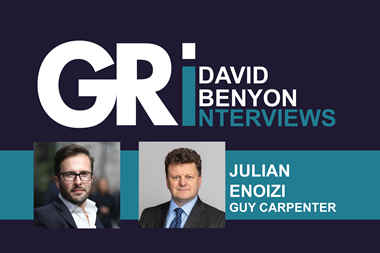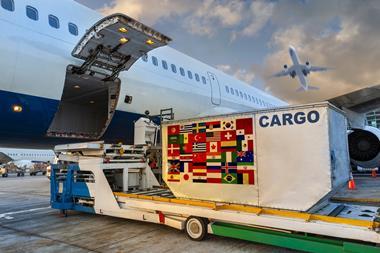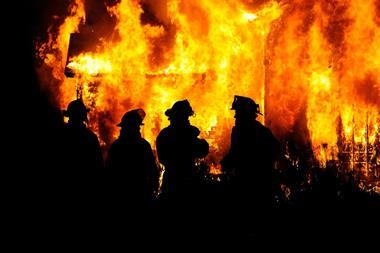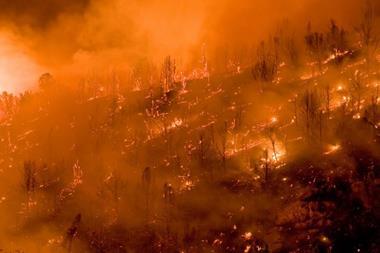FERMA is continuing with plans to create a European pool for terrorism insurance by the start of 2003, despite an apparent lack of pressure at official level. According to FERMA president, Thierry van Santen, FERMA is discussing with major insurers and reinsurers how a European wide facility could be effected, since neither the European Commission nor the European Insurance Committee (CEA) has indicated demand from member states for official action.
“It is absurd that at the moment businesses can get insurance against terrorism risks in three countries, the UK, Spain and France, where it is obligatory, but not elsewhere,” says van Santen. The near disappearance of insurance against terrorist attacks is a result of reinsurers excluding the risks from treaties renewed on 1 January. The three countries mentioned do have cover available, even if limited, through a form of pooling arrangement and state reinsurance.
Van Santen says the pool created by FERMA would operate on a facultative or voluntary basis, as opposed to the compulsory insurance required in France. The aim would be for capitalisation of approximately €1bn.
In France, a law of 9 September 1986 makes cover against terrorism a compulsory class in all French insurance contracts for physical damage. As a result, in December 2001, French insurers set up a new pool, Gareat, to cover businesses capitalised at more than €6m, as well as high rise buildings and local authorities. The state owned reinsurance company, Caisse Centrale de Réassurance, provides an unlimited reinsurance for losses above €1.5bn a year.
In Spain, with its experience of attacks by Basque separatists, the government also backs a system which covers damage by terrorists and other catastrophes. In the UK, there is pressure for the state reinsured Pool Re to expand the cover which it provides to business, but property damage and business interruption protection is, at least, available. The situation is much less comfortable in other European countries where, according to van Santen, many businesses will be without insurance for terrorism risks during 2002.
Although there is a small market growing up in stand-alone cover for losses resulting from terrorist action, he says that it is limited and very expensive at a time when business is already paying substantial increases in the cost of insurance for its traditional risks.
Amrae presses ahead
In response to substantial increases in premiums for large risks, the French risk managers’ association, AMRAE, is pressing ahead with plans to create an alternative to the commercial market for business and industry. The most likely proposal currently is a mutual for major businesses, not just in France, but in Europe as a whole.
AMRAE has yet to indicate more details of its proposed scheme, but about 20 businesses are taking part in the current discussions, and the association hopes that another 30 may be persuaded to get involved.
Following the events of 11 September and an explosion at the AZF chemical factory in Toulouse ten days later, French insurers of major risks gave notice to their clients of contract termination, to give them the opportunity to change the terms and conditions of the contracts on renewal at 1 January. Increases of more than 300% for certain risks were reported.
Ultimately, the insurers relaxed their stance somewhat, and the majority of programmes were renewed on time. However, this unilateral action by the insurers brought sharp criticism from risk managers, despite their understanding of the pressures created by the US terrorist attacks.
At the FERMA meeting in Barcelona in October, AMRAE stated: ‘Confronted with the unacceptable constraints which insurance and reinsurance companies want to impose, we should consider alternative markets at the European level. In the long term, these could lead to the formation of an entity which would fund company-specific risks.’
An additional possibility suggested by both AMRAE and the Spanish risk management association, AGERS, is tax relief for companies, allowing them to retain more risk and build up internal reserves. Captives are less common among French companies than their UK counterparts and are little used by Spanish companies.
Toulouse explosion
The explosion at the chemical factory in Toulouse on 21 September 2001 killed 29 people and was so severe that about 6,000 other businesses in the city were affected. The FFSA, the French federation of insurance companies, currently estimates insured losses at e1.5bn. Final figures for business interruption losses are not yet available. A French parliamentary report has called for better assessment and control of risks at sites producing dangerous chemicals, especially in light of the proximity of many of the installations to major population centres.
FUTURE Events
AIRMIC (UK)
ANRA (Italy)
BELRIM (Belgium)
DARIM (Denmark)
NARIM (Netherlands)
FERMA
IN BRIEF
On 18 December, Cepreven (Research Association for the Security of Lives and Properties) held its XXVI annual meeting where AGERS participated as usual. A co-operation agreement has been concluded between AGERS and Cepreven, and different initiatives, such as seminars and workshops are being carried out jointly. AGERS is also introducing risk management courses for the Industrial Engineers Association of Madrid.



















